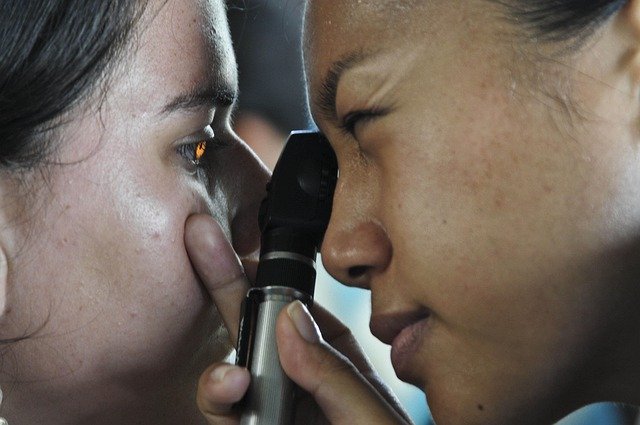Spotting the Early Signs of Kidney Trouble
Kidney issues often develop quietly, with subtle symptoms that are easy to miss or dismiss. Recognizing these early warning signs can help you take action before the problem worsens and affects other areas of your health. Here’s what to watch for and when it might be time to speak with a doctor.

The Link Between Fluid Retention and Kidney Problems
When kidneys aren’t functioning properly, they can’t effectively remove excess fluid from your body. This often results in fluid retention, one of the earliest and most common signs of kidney trouble. You might notice puffiness around your eyes, especially in the morning, or swelling in your hands and face. This happens because your kidneys aren’t properly filtering out sodium and excess fluid, allowing them to accumulate in your tissues.
Fluid retention can also manifest as unexplained weight gain over a short period. If you’ve gained several pounds in just a few days without changes to your diet or activity level, your kidneys might be struggling to maintain proper fluid balance. This type of fluid retention differs from typical weight fluctuations because it often feels like “water weight” and may be accompanied by tightness in affected areas.
The Role of Fatigue and Weakness in Kidney Disease Symptoms
Persistent fatigue that doesn’t improve with rest is another early warning sign of potential kidney problems. Your kidneys produce a hormone called erythropoietin that signals your body to make red blood cells. When kidney function declines, you produce fewer of these oxygen-carrying cells, potentially resulting in anemia and the profound fatigue that comes with it.
Beyond general tiredness, you might experience weakness, particularly in your limbs, difficulty concentrating, or feeling cold even in warm environments. These symptoms develop because your kidneys help regulate important electrolytes that affect muscle function and energy levels. Many people dismiss these symptoms as signs of stress or inadequate sleep, but when they persist despite lifestyle changes, they warrant medical attention.
Why is Monitoring Swelling in Legs and Feet Important for Kidney Health?
Swelling in the lower extremities—your ankles, feet, and legs—is particularly significant when considering kidney health. Unlike temporary swelling that might occur after standing all day, kidney-related edema often worsens throughout the day and may leave indentations when pressed (a condition called pitting edema).
This swelling occurs because impaired kidneys cannot remove excess fluid properly, and gravity pulls this fluid downward to pool in your lower extremities. If you notice that your shoes feel tight by evening, your socks leave impression marks, or you can press a finger into your skin and the indentation remains for several seconds, these could be signs your kidneys need attention. Left untreated, this swelling can become uncomfortable, limit mobility, and potentially lead to skin infections or ulcers.
How Can Changes in Urination Patterns Signal Kidney Problems?
Your urination patterns offer direct insights into kidney function. Healthy kidneys maintain consistent patterns, but when function declines, you might notice several changes. These include:
-
More frequent urination, especially at night (nocturia)
-
Decreased urine output despite normal fluid intake
-
Foamy or bubbly urine (indicating protein in the urine)
-
Dark-colored urine (beyond normal concentration from dehydration)
-
Pressure or difficulty urinating
Blood in the urine, even in amounts too small to see with the naked eye, is another serious indicator of potential kidney issues. Some people also report a change in the smell of their urine or a persistent urge to urinate even when little urine is produced. These changes occur because the kidneys’ filtering mechanisms are compromised, affecting both the volume and composition of your urine.
Early Detection and Treatment Options for Kidney Disease
Catching kidney disease early significantly improves outcomes. If you recognize any of the warning signs mentioned, consult with your healthcare provider promptly. They’ll likely recommend:
-
Blood tests to measure your creatinine and BUN (blood urea nitrogen) levels
-
Urine tests to check for protein, blood, or other abnormalities
-
Imaging studies such as ultrasound to examine kidney structure
-
Blood pressure monitoring, as hypertension both causes and results from kidney issues
Early-stage kidney disease treatment focuses on slowing progression and preventing complications. This typically involves controlling underlying conditions like diabetes and hypertension, dietary modifications, and medication management. Your doctor might recommend reducing sodium and protein intake, maintaining proper hydration, and taking medications to control blood pressure, reduce proteinuria, or address specific causes of kidney dysfunction.
For moderate to advanced kidney disease, treatment becomes more intensive and may include medications to treat anemia, manage mineral imbalances, and control phosphorus levels. In later stages, dialysis or kidney transplantation might become necessary, though early detection often helps patients avoid or delay these interventions.
This article is for informational purposes only and should not be considered medical advice. Please consult a qualified healthcare professional for personalized guidance and treatment.




